Done Dieting? 10 Wellness Resolutions that aren’t Dieting
- November 9, 2023
- Last Updated: January 31, 2025
- 2 Comments
- Intuitive Eating
Are you done with dieting? Try these non-diet wellness resolutions that can improve health, but don’t rely on deprivation and strict dieting. It doesn’t have to be one or the other!
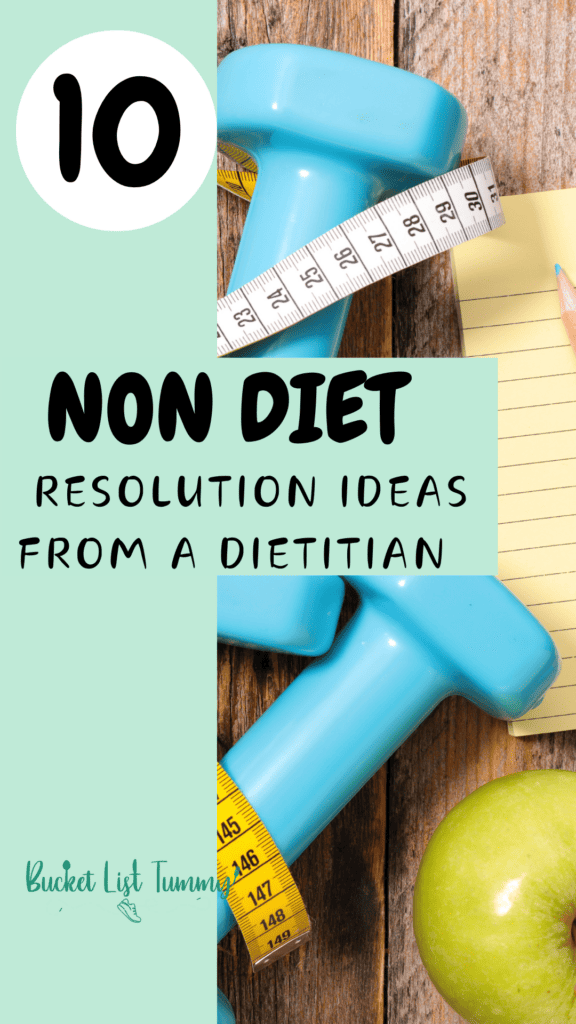
As an Amazon Associate, I may earn from qualifying purchases. You can read more here about our Disclaimer and Privacy Page.
My clients often feel like making a wellness resolution means making a weight loss resolution, but they are not one in the same and don’t have to be.
The New Year’s diet messaging can be very alluring. I get it. I used to fall victim to it, too.
Use these new year self care and non diet resolutions to feel confident and improve your relationship with food.
It’s not that you can’t diet. It’s okay to want to eat healthier and/or lose weight. There is no fault in having those goals. But you can also practice these national nutrition month tips!
But, you said you were done dieting, right?!
Let’s explore more. We know that in 99% of fad diets fail. Restriction harms your body more in the long run, by slowing down metabolism.
But, just because you’re not purposely setting out to change your body doesn’t mean healthy.
10 Wellness Resolutions That Aren’t Dieting But Can Improve Health
Sick of the new year diet resolutions? But still care about your health? Try a wellness resolution!
Here are some of my favorite non diet resolution ideas to help improve overall health and wellbeing, and even performance, if applicable.
1. Drink More Water
The importance of hydration can’t be emphasized enough. And yes, even in the winter months, winter hydration is just as important.
Hydration helps with so much, including:
- metabolism and optimal GI function
- normal electrolyte levels
- normalizing body temperature
- maximizing physical performance
- optimal cognitive function
- improve energy and more

2. Get More Sleep
Oh, the importance of sleep! While I often focus on sleep during marathon training, it’s just important for daily life and function.
While we each do function best on different levels of sleep, generally the recommended daily allotment is at least 7 hours per night.

Inadequate sleep will alter our hunger hormones and affect hunger and fullness levels, cravings, and can also increase the risk of injury, among other things.
We actually interviewed sleep expert and RD, Amy Bender, on the Nail your Nutrition podcast. There’s some great nuggets in here!
Grab Our Meal Prep Ebook to Finally Conquer Meal Prep in the Kitchen
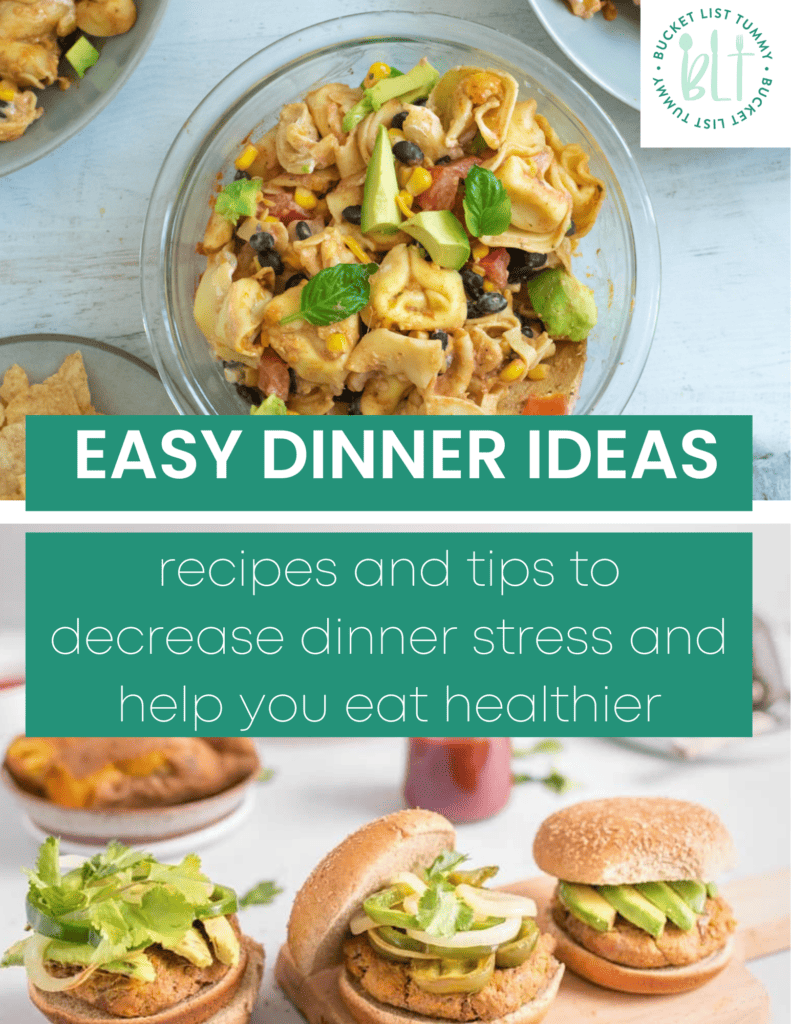
3. Try Some Sort of Meal Planning or Prep
Meal prep does not need to be all or nothing by any means! In fact, simple meal prep and planning helps to reduce food waste and can help save you money in the long run.
Meal planning can even mean subscribing to your favorite meal delivery service to make your weeks a little less chaotic. I love Blue Apron and rely on it for busy seasons of life.
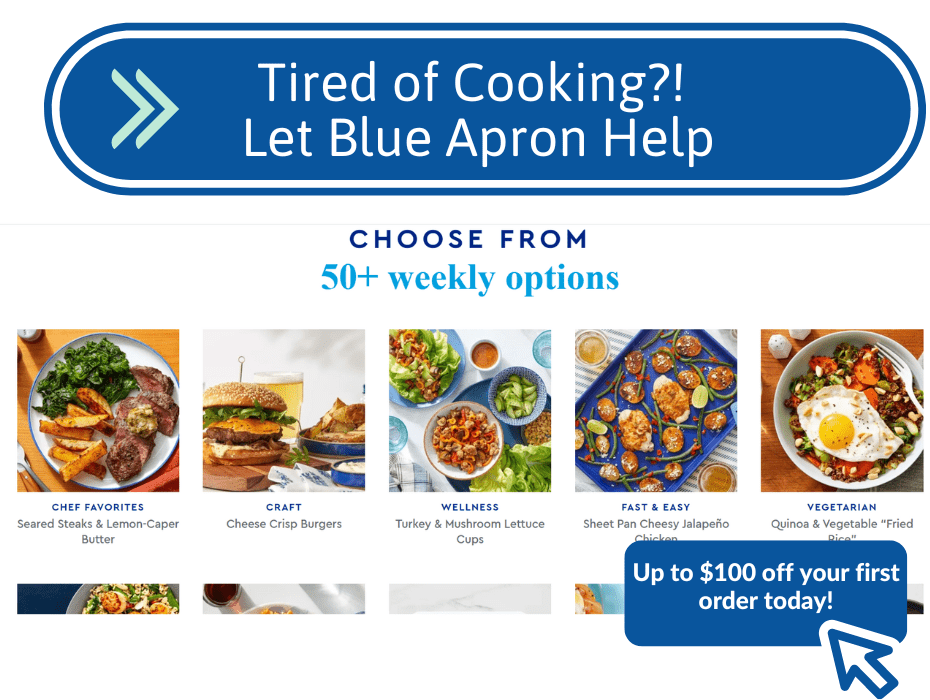
These subscription services really helped post-baby when we had no time or energy to cook, but also during heavy training cycles, chaotic weeks or even times when I was single parenting!
If you’re new to meal planning, here are some of my favorite resources.
4. Eat More Fiber
The majority of food sources of fiber are fruits, vegetables, whole grains and legumes – foods that have several nutrient benefits anyway.
Many clients come to me with goals of “eating healthier,” without really knowing or understanding what the actually means. It can be a big, vague goal.
So, we work to be more specific. Including more fiber is a more specific goal that would fall under eating healthier.
Fiber also offers prebiotics, which help to nourish probiotics in your body and enhance gut health.

There is still an abundance of research to come on the impact of our microbiome on overall health, but eating a variety of fiber rich foods will certainly help!
Plus, fiber rich fruits and veggies also have a slew of antioxidants that can improve performance and affect overall well being.
For starters, try these fiber-rich recipes:
You can also work to add more fermented foods into your diet to increase your probiotic intake.
Some options include kefir, yogurt, miso, natto, kimchi, sauerkraut, tempeh and kombucha.
5. Say Goodbye To Your Food Rules
Food rules aren’t benefitting ANY of us. The food police is truly a demonizing crew.
If you were truly honest with yourself, could you honestly admit that food rules have made your life better in any way?
Have they made you feel more “in control” or “out of control” of your food choices?

Have they contributed to more or less stress around food?
Practicing food flexibility is key to making peace with food!
6. Spend More Time Standing
While someday I’ll get a treadmill desk, in the meantime, I just use a laptop stand (it’s on deal currently). An even simpler answer is to just plop your laptop on a stack of books.
Even just adding more standing or adding more movement to your day can be helpful!

7. Spread Protein Out Throughout the Day
While many of us may know to eat protein after a workout, you should also be including protein in your other meals and snacks consistently.
Aim for 25 grams of protein at breakfast!
Most people save protein for dinner, when in reality, it needs to be evenly spaced throughout the day!

Try an asparagus mushroom quiche or a skillet breakfast scramble for breakfast, roasted chickpea sandwiches or a broccoli kale salad with salmon for lunch, and a quick chicken apple sausage sheet pan dinner for a 20 minute dinner.
Don’t forget protein in your snacks – hemp seed granola or a greek yogurt smoothie are some of my favorites to break up the day.
All will provide you adequate protein amounts, spread throughout the day!
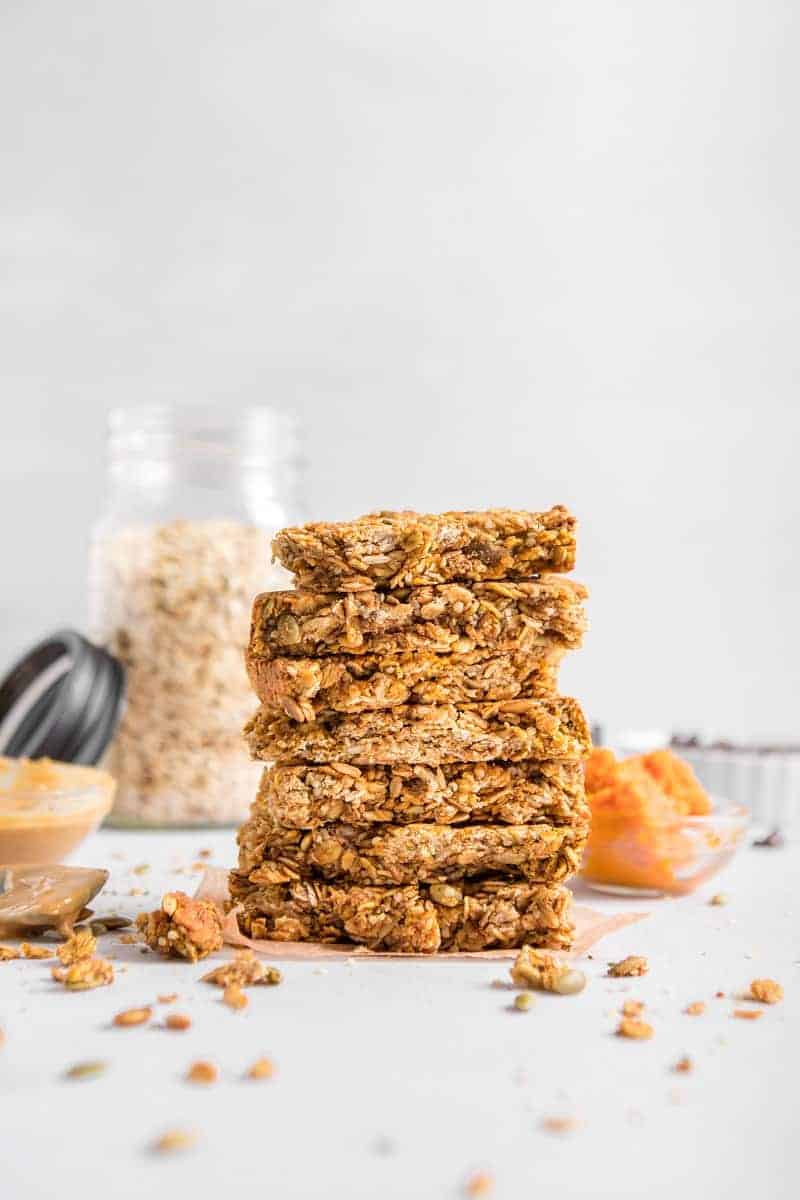
This is also where meal planning can help if you can mentally plan out these eating occasions and recipes/snacks ahead of time.
8. Eat More Plants
While this ties into eating more fiber, we can also reduce our meat intake. While you definitely don’t need to eliminate meat completely, it can be a good practice to include more plant-based meals in your routine.
Tofu, tempeh, edamame, beans and lentils are great starters for any meal.
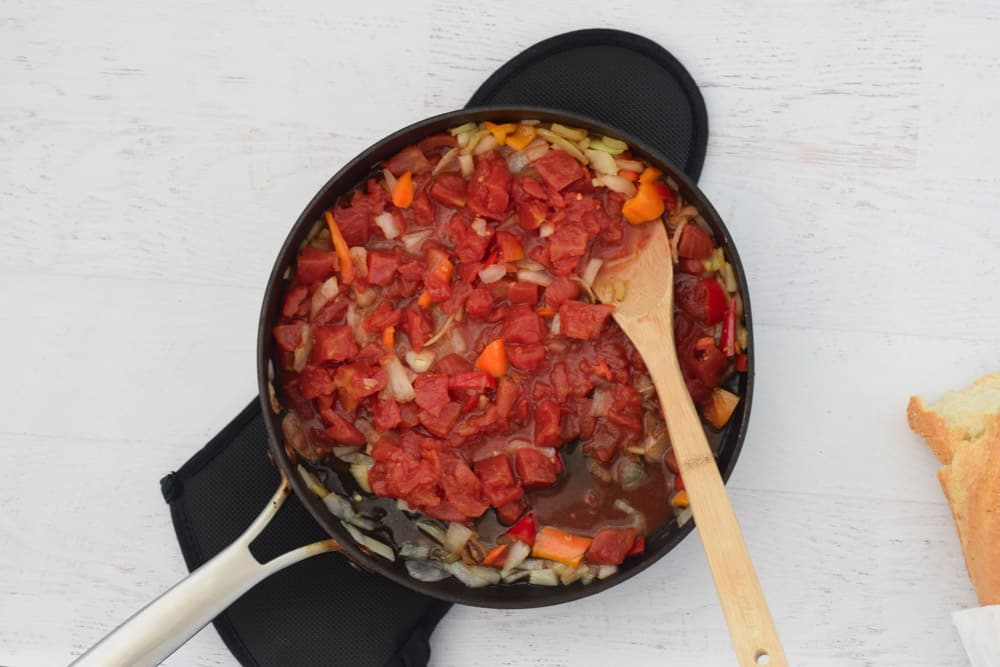
And it’s a myth that you can’t get enough protein on a vegetarian or vegan diet – you definitely can, it just takes some planning.
Here are some of my favorite vegetarian proteins and vegan meals.
9. Cut Down Your Social Media Use
We’re all addicted to our phones, and while there are some helpful parts about social media, it can also be a breeding zone for comparison, shame and feeling bad about ourselves.
It can also lead to a hyperfocus or feeling obsessed with food and making those rigid food rules even worse. Especially around the new year, you’ll see lots of fad diet products being marketed.
Reducing social media use can make more time for other things, like a peaceful walk in nature, quiet space to meditate or read a book for pleasure, spend more time with your kids, etc.

10. Commit to Learning Something New Weekly
Whether it be a book or audiobook, or watching a new show or learning from Skillshare, it’s great for our brains to continue to learn.
I like to listen to new podcasts – sometimes about history, sometimes learning a new language, etc. It’s all very fascinating to learn things outside of just health and nutrition!
Maybe you could set a goal to learn something each week that you’ve always been wanting to know about?
There are so many resources available today to do so!
Explore More Recipes
Intuitive EatingSupport Bucket List Tummy

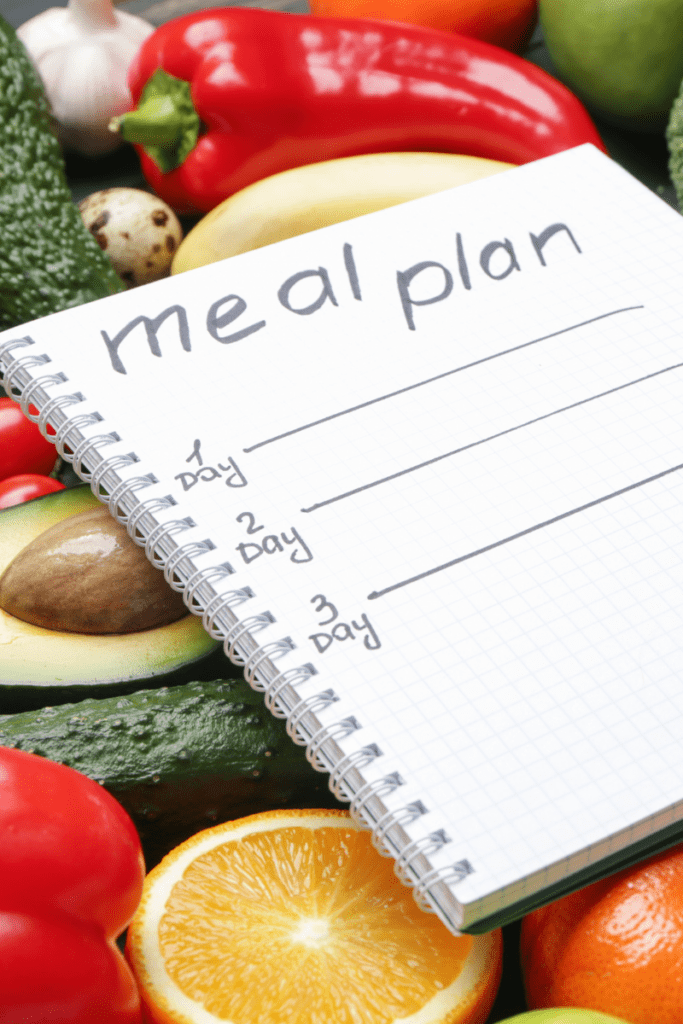


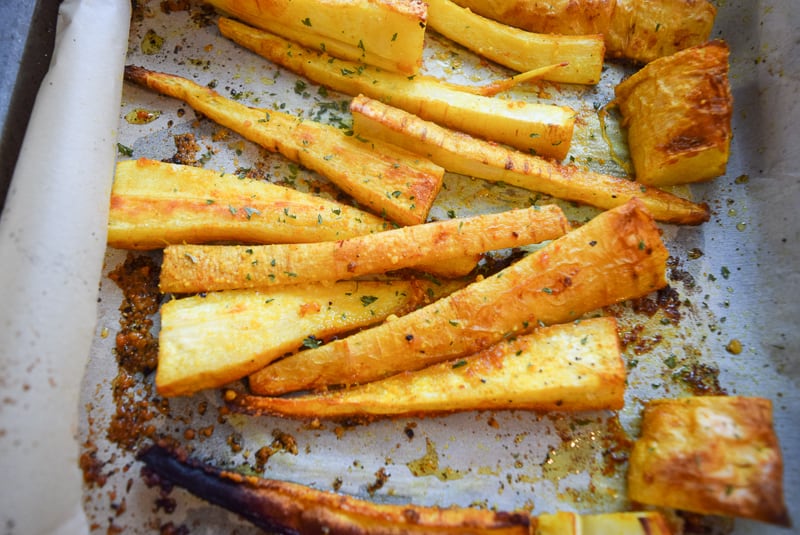
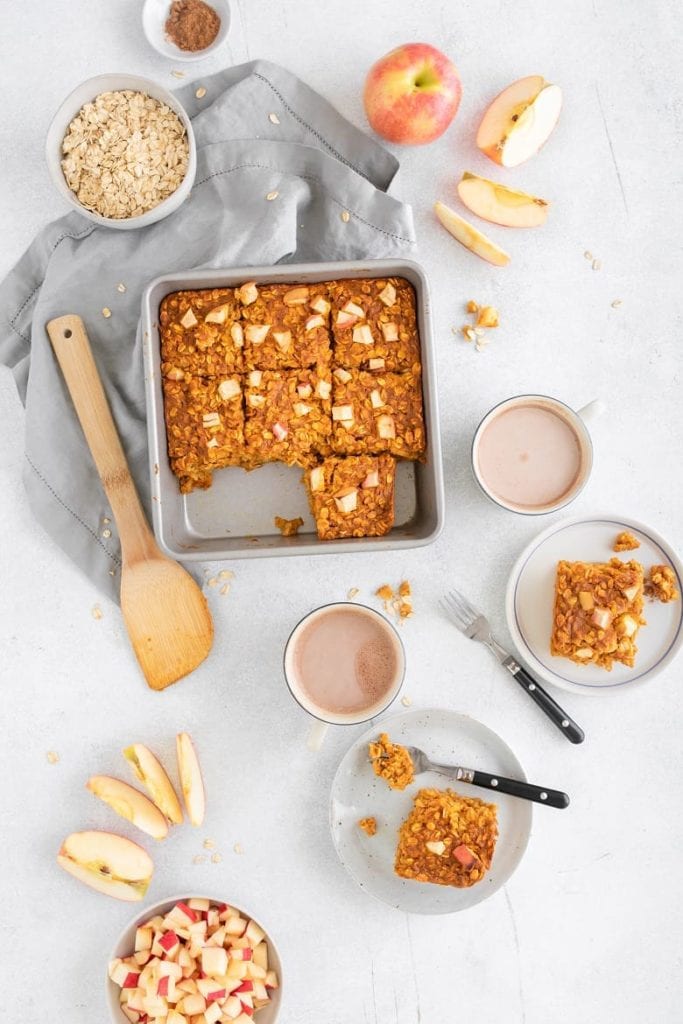



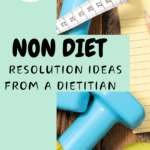
Like This Content?
Support Bucket List TummyThe banana chia pudding looks absolutely delicious!!!